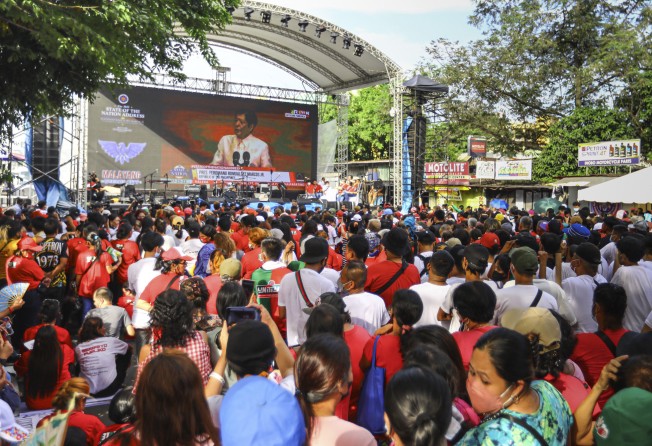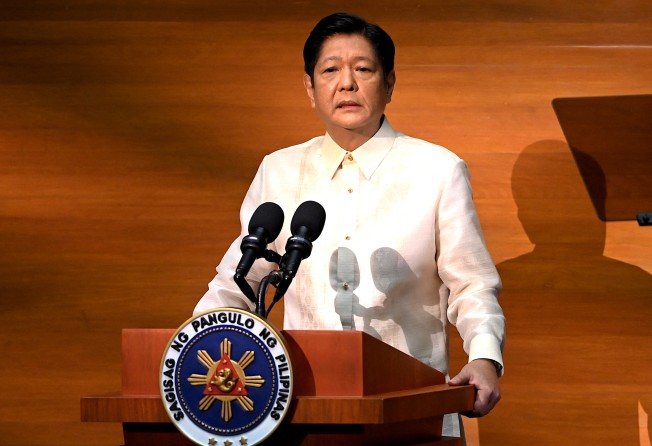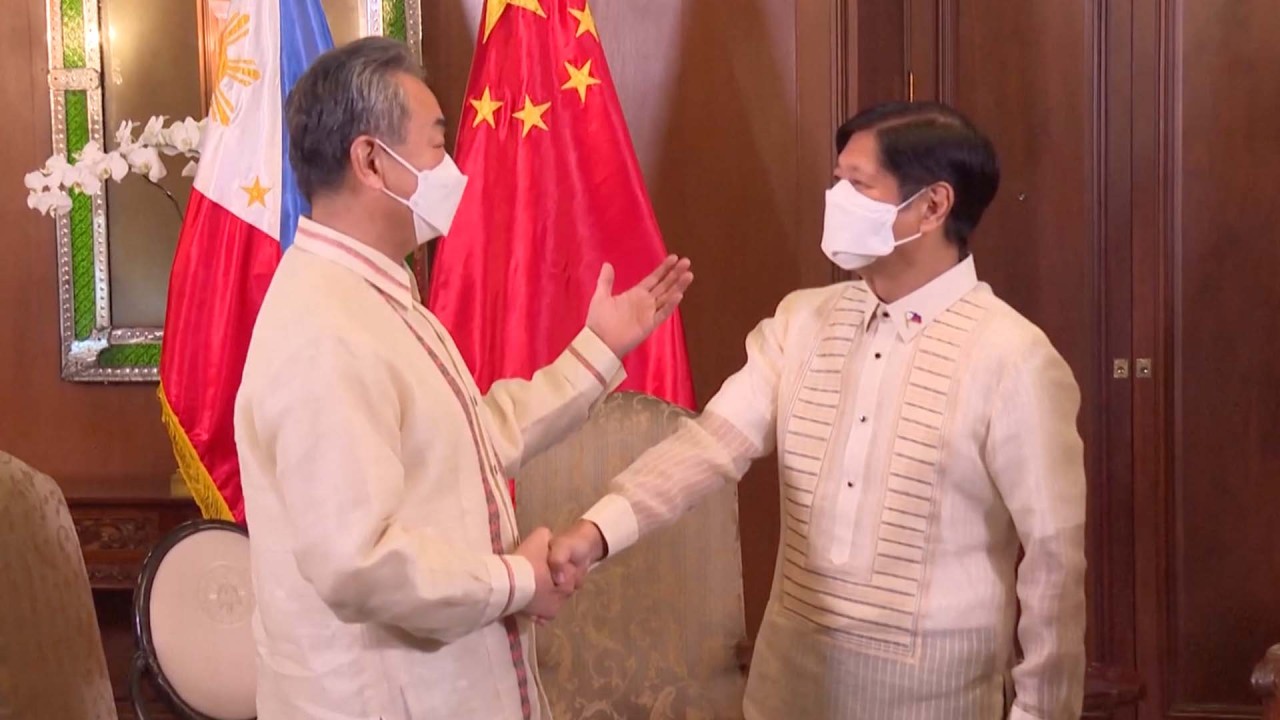
Philippines will be ‘a good neighbour’ but won’t yield territory, Marcos says in first policy speech
- His first State of the Nation address did not mention any other country by name, or the South China Sea conflict
- He spent the bulk of his speech on his economic plans, which will include continuing Duterte’s infrastructure programme, tax reforms and cutting the poverty rate

President Ferdinand Marcos Jnr on Monday pledged that the Philippines would use diplomacy and be “a good neighbour” to other countries, but would not yield an inch of its territory.
In his first State of the Nation address, he made wide-ranging promises, including tax and agriculture reforms, a faster infrastructure upgrade, and plans to turn his country into an investment destination.
“On the area of foreign policy, I will not preside over any process that will abandon even a square inch of territory of the Republic of the Philippines to any foreign power,” said Marcos Jnr, to applause by lawmakers.
“If we agree, we will cooperate and we will work together,” he said. “If we differ, let us talk some more until we agree. After all, that is the Filipino way.”
His foreign policy pronouncements consisted only of 15 paragraphs in the nearly two hour-long speech, and made no mention of any other country by name, or the South China Sea conflict.
Marcos Jnr stressed the need to reinstate a “mandatory Reserve Officers’ Training Corps and National Service Training Program” but did not explain why there was a need for “national defence preparedness”.
Instead, he rattled off a long list of targets that included the need to “re-examine” the construction of a nuclear power plant, while emphasising the use of renewable energy.

The bulk of his speech concentrated on economic revival, the assistance he would give to Filipino farmers and overseas Filipino workers, and the continuation of the infrastructure programme of his predecessor, Rodrigo Duterte.
Without mentioning the failed rice sufficiency and subsidy programmes of his late dictator father, Marcos Jnr mapped out similar schemes that would help farmers buy fertiliser, pesticides, fuel and feeds; condone their debts; and establish “Kadiwa Centres” that would buy their produce and sell these to the poor at subsidised prices. He did not mention when these initiatives would begin.
The only person he thanked by name was his predecessor Duterte – who was not at the event – for signing the law creating the new Department for Migrant Workers. Marcos Jnr promised this department would cut the processing time of outbound overseas Filipino workers (OFWs) from three months to three weeks, simplify the present Handbook for OFWs and put up a One Repatriation Command Center for distressed Filipinos abroad.
He also said he would continue Duterte’s Build, Build, Build programme, which includes railway projects.
However, he was silent about continuing Duterte’s two other pet policies – the war on drugs and battle against communist rebels. The only drugs mentioned was his intent to encourage more generic drug manufacturing.
Marcos Jnr set lofty targets for himself in his six years in office: a 6.5 to 8 per cent real GDP growth annually; a 9 per cent or single-digit poverty rate by 2028 from 23.7 per cent last year; a US$4,256 income (GNI) per capita compared to World Bank’s estimate of US$3640 last year; and a 3 per cent national government budget deficit-to-GDP ratio, from 8.6 per cent last year.
The president added that the government would resist imposing fresh Covid-19 lockdowns as it sought to balance the needs of the economy with public health.
His goals prompted academic and historian Jean Franco to question on Twitter if the single-digit poverty rate was “doable”.
Marcos Jnr made a few short-term specific promises, such as issuing 30 million National ID cards by the end of the year, which means delivering 15 million more this year, on top of the 14 million already sent since 2017.
To afford all of these expenses, he hinted at the need for new taxes: “Our tax system will be adjusted in order to catch up with the rapid developments of the digital economy, including the imposition of value-added tax on digital service providers. The initial revenue impact will be around 11.7 billion pesos in 2023 alone.”
Netizens and critics have repeatedly urged Marcos Jnr to pay off the 203 billion pesos of taxes still owed to the government on his late father’s estate.
The opposition party-list group Akbayan was dismissive of the president’s first policy speech.
“Marcos Jnr promised us unity and prosperity, but his SONA did not show us the path to their fulfilment. It was an address that was neither here, nor there,” it said.
“The President did not take control of the state of the nation. He set it on autopilot and put us on a possible collision course, straight into a mountain of impending disaster. There will be dark days ahead.”
